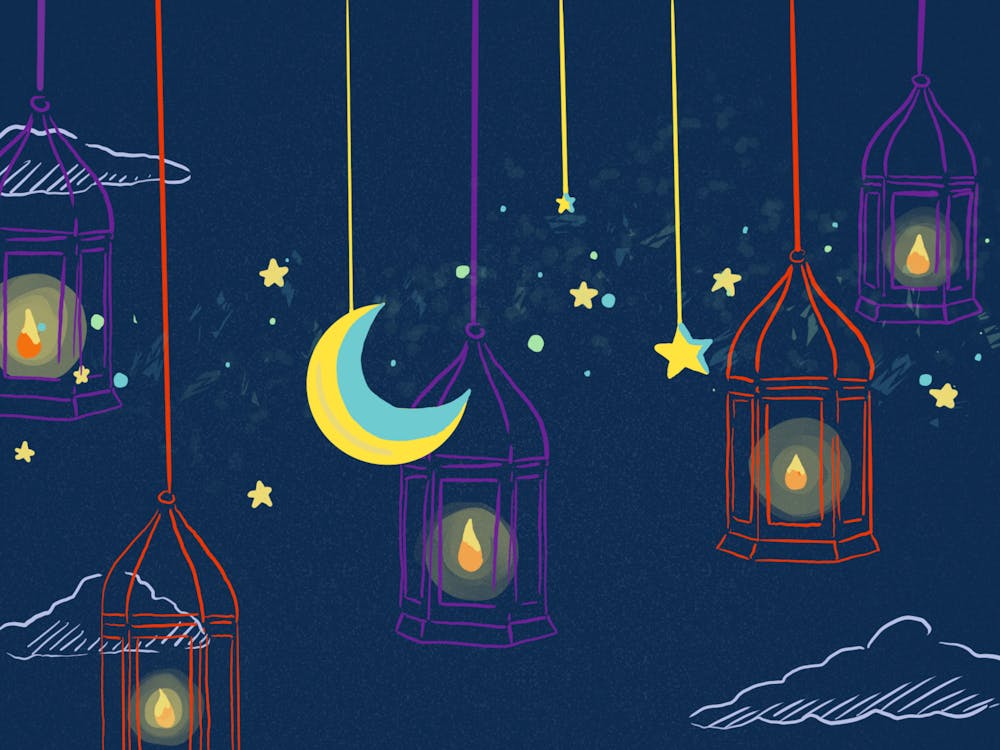
The ever-changing news of the outside world can feel suffocating. But at home, during Ramadan, some long-standing traditions make it feel like nothing’s changed.
My mother’s alarm rings precisely at 3:45 am. She quickly rises, running downstairs to fry parathas and prepare suhoor — the meal Muslims around the world eat before beginning the day’s fast. As we sit sleepy-eyed and scarf down food before the azan — or call to prayer — rings on the phone, we chat about random thoughts or plans for the day ahead.
Since I left for college, I have been unable to celebrate most of the Ramadan month with my family. With a consuming class and work schedule, I have missed many of the Ramadan traditions I grew up with. Although the circumstances are less than ideal, a silver lining of quarantine has been the ability to celebrate this special time with my family at home.
Quarantine has left time for many of us to do what our overstimulated society so rarely leaves time for — reflection. Coincidentally, this is the main goal of Ramadan. While fasting from sunrise to sunset is the most well-known observation of Ramadan, Muslims are encouraged to spend this month abstaining from all usual distractions — not just food and water. The hope is that time away from the things that typically consume us will force us to realize what really matters.
The most hectic time of day in my house is usually 7:30 pm, when the sun begins to dusk. My mother scurries around the kitchen, quickly frying samosas, mixing fruit chaat, and seasoning the chana chole. The house fills with vibrant smells, signaling iftar — the meal we eat to break our fast.
Under normal circumstances, iftar is often celebrated with the local Muslim community. In previous years, my family would attend iftar parties at family friends’ homes, or go to a local mosque to pray and celebrate. Last year, the first year Ramadan was celebrated on Penn’s campus in many decades, a similar communal tradition was created. Iftar meals were hosted by the chaplain’s office and the Muslim’s Student Association. Muslims across campus came together to observe the holiday.
While social distancing has kept us from continuing these gatherings, it has forced us to create new, and perhaps more thoughtful, ways to maintain community. Throughout the month, family friends have rotated dropping off iftar meals to houses. And if anything, Zoom chats and phone calls between family and friends, filled with updates about life in the pandemic, are more frequent than ever.
I have had an inconsistent relationship with my faith my entire life. Every year, my spirituality fluctuates as I grow and experience the world in new ways. Even so, Ramadan has always felt special to me. I consider the month to be a spiritual journey rather than a religious obligation. This year, I feel this even more.
For so many of us, the things we so easily took for granted, like our daily routines or time spent with others, were quickly taken away by this pandemic. But while this has been a time of grief for what we have lost, it has also been a time of gratitude for what we still have.
Now more than ever, I am thankful I have to be forced to realize what truly matters. I am thankful for time spent with friends and family. I am thankful for the health of those I love. Perhaps for the first time, I feel as though I am beginning to understand the purpose of the disruptive nature of Ramadan — it is an annual reminder to be grateful for everything we have, from food and water, to community and faith. And now, as all of our lives shift, even those that don’t practice Ramadan will remember not to take these things for granted.

UROOBA ABID is a College junior from Long Island, N.Y. studying International Relations. Her email address is uabid@sas.upenn.edu.
The Daily Pennsylvanian is an independent, student-run newspaper. Please consider making a donation to support the coverage that shapes the University. Your generosity ensures a future of strong journalism at Penn.
Donate






